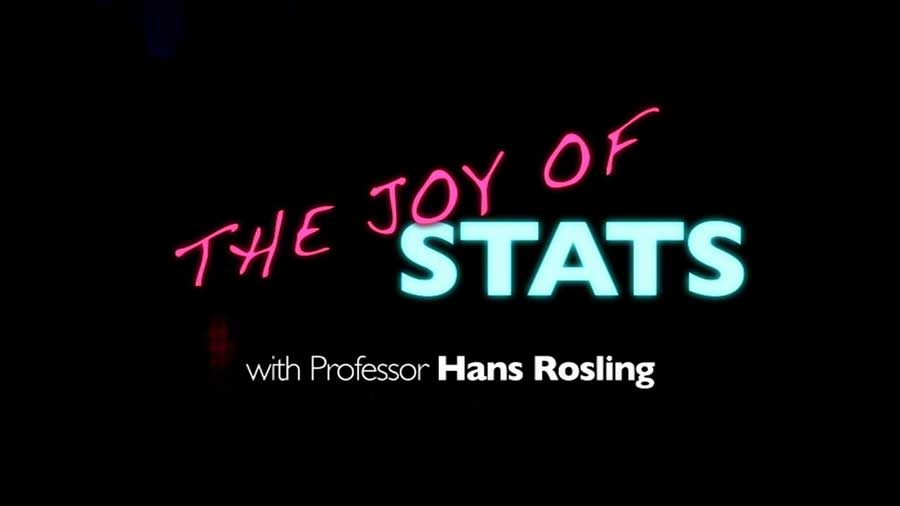The Joy of Stats: Documentary which takes viewers on a roller-coaster ride through the wonderful world of statistics to explore the remarkable power they have to change our understanding of the world, presented by superstar boffin Professor Hans Rosling, whose eye-opening, mind-expanding and funny online lectures have made him an international internet legend.
Rosling is a man who revels in the glorious nerdiness of statistics, and here he entertainingly explores their history, how they work mathematically and how they can be used in today’s computer age to see the world as it really is, not just as we imagine it to be.
Rosling’s lectures use huge quantities of public data to reveal the story of the world’s past, present and future development. Now he tells the story of the world in 200 countries over 200 years using 120,000 numbers – in just four minutes.
The Joy of Stats
The film also explores cutting-edge examples of statistics in action today. In San Francisco, a new app mashes up police department data with the city’s street map to show what crime is being reported street by street, house by house, in near real-time. Every citizen can use it and the hidden patterns of their city are starkly revealed. Meanwhile, at Google HQ the machine translation project tries to translate between 57 languages, using lots of statistics and no linguists.
Despite its light and witty touch, the film nonetheless has a serious message – without statistics we are cast adrift on an ocean of confusion, but armed with stats we can take control of our lives, hold our rulers to account and see the world as it really is. What’s more, Hans concludes, we can now collect and analyse such huge quantities of data and at such speeds that scientific method itself seems to be changing.
Statistics
Statistics is the discipline that concerns the collection, organization, displaying, analysis, interpretation and presentation of data. In applying statistics to a scientific, industrial, or social problem, it is conventional to begin with a statistical population or a statistical model to be studied. Populations can be diverse groups of people or objects such as “all people living in a country” or “every atom composing a crystal”. Statistics deals with every aspect of data, including the planning of data collection in terms of the design of surveys and experiments. See glossary of probability and statistics.
